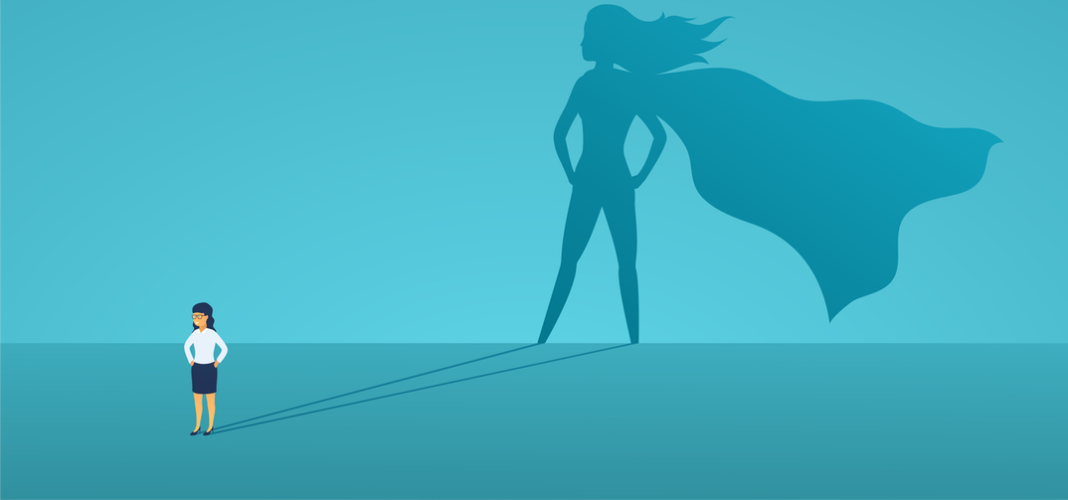A few days ago, my 12-year-old daughter showed me a video montage she made filled with photos of her and her friends hugging, dancing, and laughing — all the things 12-year-old girls love doing together. That was before coronavirus. The final image is of her looking sad with the tagline, “What Corona Took From Us.”
The novel coronavirus came crashing into our lives, upending life as we know it. Overnight, how we work, learn, and socialize capsized, and the waves keep crashing. There is no doubt that this upheaval is taking an emotional toll. More than half of Americans say the COVID-19 crisis has already affected their mental health either a great deal or somewhat.
A number of factors are aggravating the stress people are experiencing including financial strain, inadequate information, fear of infection, and feeling disconnected from loved ones. I am doing my best to keep up with friends but after a long day filled with virtual interactions, I often lack the energy to reach out. Zoom meetings exhaust me in a way that in-person meetings never did. This new normal feels so abnormal.
A patient with a history of anxiety said her anxiety was under control but that she felt off-kilter:
“What I’m feeling is hard to put into words. It’s not my regular catastrophic worry—it’s more of a dull, nagging, uneasiness that occurs when something you love goes missing.”
A sense of loss, both large and small, is pervasive. People have lost friends and family members to COVID-19. Other losses are more ambiguous.
“We’re capable of losing places, projects, possessions, professions, and protections, all of which we may be powerfully attached to. This pandemic forces us to confront the frailty of such attachments, whether it’s to our local bookstore or the routines that sustain us through our days,” says Dr. Robert Neimeyer of the Portland Institute for Loss and Transition at the University of Memphis.
Bereavement expert, David Kessler, believes that the unfamiliar feeling many of us are experiencing is grief—grief for what we have lost and also anticipatory grief, an ongoing dread that something bad looms on the horizon. Recognizing that what we are feeling is grief can help us cope with it.
“There is something powerful about naming this as grief. It helps us feel what’s inside of us. When you name it, you feel it and it moves through you. Emotions need motion,” says Kessler.
Grief helps us recalibrate our sense of self. It is a natural response to loss. So is resilience. Research by George Bonanno, a psychologist who heads the Loss, Trauma and Emotion Lab at Columbia University, shows that contrary to what many believe, most people ultimately adapt and cope well in the face of adversity.
In fact, the vast majority of individuals exposed to traumatic events do not go on to develop PTSD or require therapy. A survey conducted one month after the September 11th terrorist attacks in New York City estimated that over 7.5% of Manhattan residents would meet the criteria for PTSD and require ongoing treatment. Thankfully, that did not happen–six months later the prevalence of PTSD related to 9/11 was less than 0.6%.
Exposure to a traumatic event does not automatically mean a person needs grief or trauma counseling. Not only have studies found most grief interventions to be ineffective, but there is also evidence they may interfere with natural resilience processes.
Bonanno’s work debunks the widely held assumption that only rare individuals with exceptional emotional strength are capable of bouncing back. The reality is that most of us adjust to challenges, adversity, and loss.
Resilience is the norm, not the exception. While there is justifiable concern about the impact of the pandemic on mental health, it’s equally important to remember that most of us have the capacity to adapt. As Bonanno says, “This is not easy, but we can do it.”
The “we” is key. Being there for one another lies at the heart of resilience.
Everywhere we turn, there is suffering and loss but we are also bearing witness to its opposite—generosity, goodness, and compassion. A son sits outside his father’s nursing home window to make sure his dad sees him every day. A man holds up a sign that read “Thank you all in Emergency for saving my wife’s life. I love you all.” Healthcare workers are applauded from balconies and rooftops. Neighbors are taking care of their neighbors.
In the words of Helen Keller, “Although the world is full of suffering, it is also full of overcoming it.”
I wish you all the best,
Dr. Samantha Boardman






